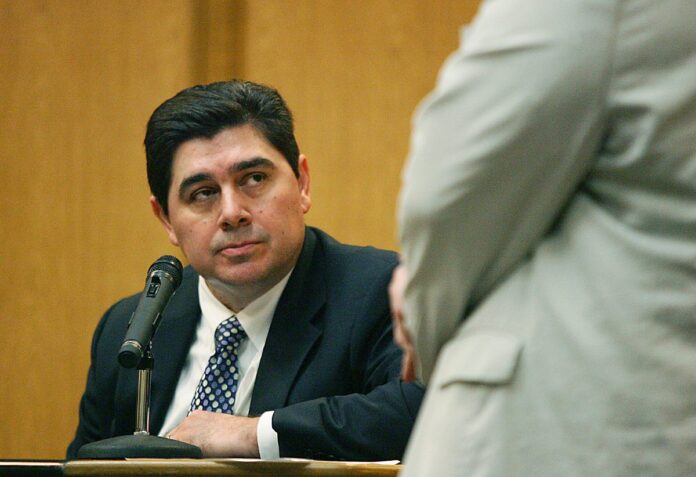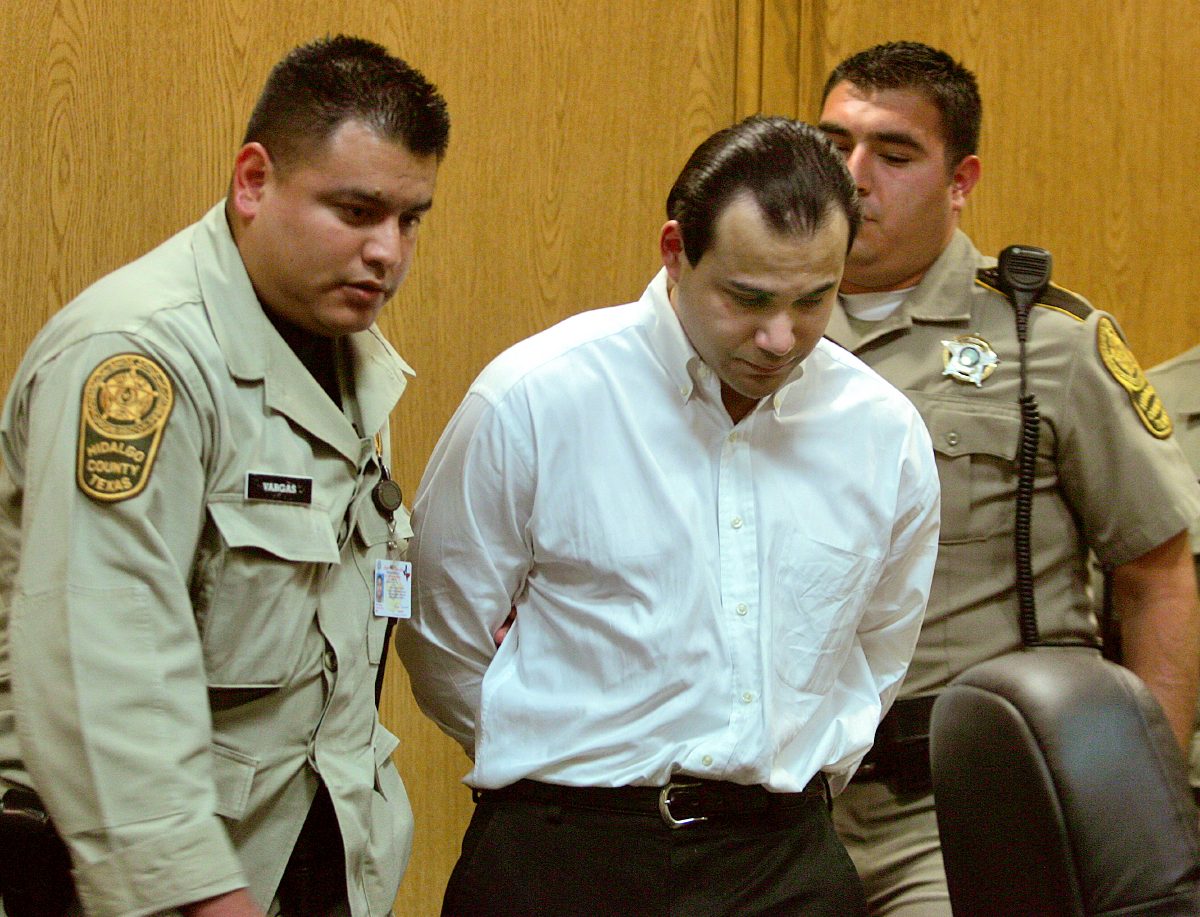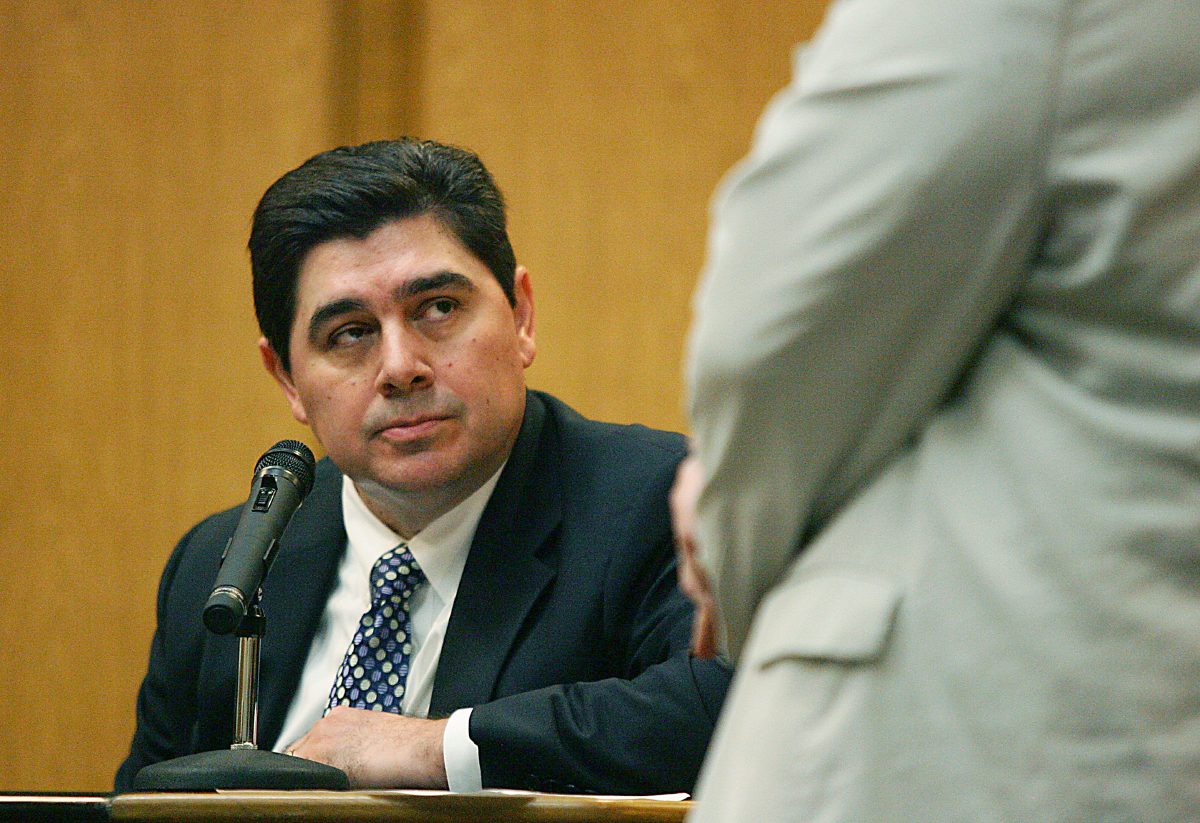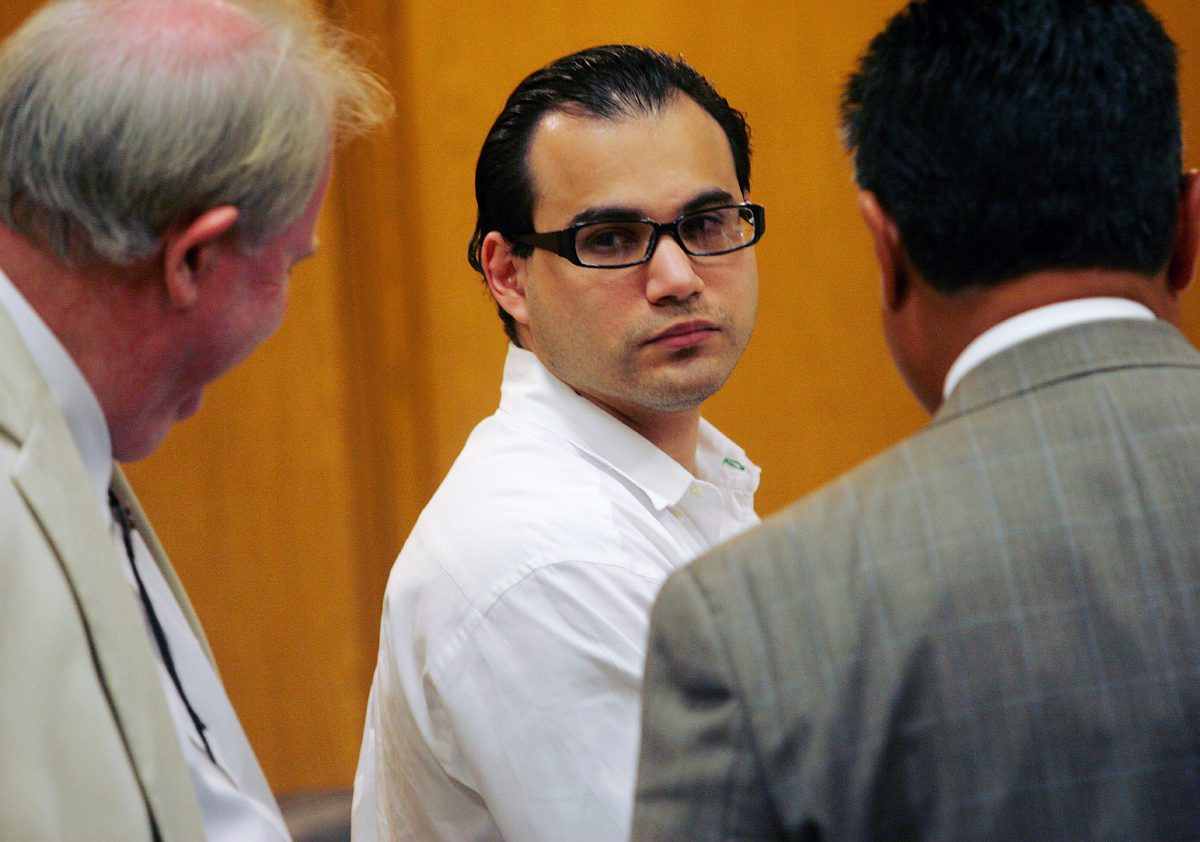BROWNSVILLE — An attorney representing convicted child killer John Allen Rubio wants the conviction tossed, claiming Rubio’s appointed defense did not represent him properly and that his case was handled by a district attorney that was steeped in scandal and misconduct.
Jeremy Schepers, supervisor of the Capital Habeas Unit and federal public defender, filed a petition for writ of habeas corpus this month in the U.S. federal court in the Southern District of Texas, “declaring unconstitutional and invalid his (Rubio’s) conviction for capital murder as well as the resulting death sentence.”
A jury in 2010 found Rubio guilty in the beheading of Julissa Quesada, 3; John E. Rubio, 14 months; and Mary Jane Rubio, 2 months. The three children were those of his common-law wife Angela Camacho.
The children were smothered, stabbed and mutilated, according to Brownsville police investigators. Their decapitated bodies were stuffed inside trash bags and found near a bedroom door.
According to a confession Rubio made to police, he admitted to killing the children in 2003 because he believed there was an evil presence in them. He even asked one of the officers who first arrived at the crime scene to place him under arrest, according to the officer’s statement.
Rubio, 39, a Brownsville native, remains on death row at the Polunsky Unit in Livingston, Texas.
Camacho, 39, pleaded guilty to murder in 2005 and was sentenced to life in prison and remains in custody at the Christina Melton Crain Unit in Gatesville. She is eligible for parole March 3, 2043.
Schepers lists nine claims for relief in why Rubio’s conviction should be tossed out and he be given a new trial.
Mental Health
According to the writ, Rubio’s attorneys failed to include the appropriate mental health expert on his defense team. Rubio was being represented by attorneys Ed Stapleton and Nat C. Perez Jr.
“Trial counsel’s failure to assemble the minimum required defense team prejudiced Rubio at the competency trial, and at both the guilt/innocence and punishment phases of the trial on the merits,” the writ alleges.
Had Rubio’s defense team retained a consulting mental health expert, “they would have recognized the need to present testifying experts regarding, among other things, Rubio’s exposure to extreme trauma beginning in utero and continuing into adulthood,” the writ states.
According to that document, Rubio suffered from neuropsychological deficits, significant brain damage and various psychiatric conditions. “All such testimony would have been highly relevant to Rubio’s competency at the time of trial, his sanity at the time of the offense, and punishment,” the writ further states.
During Rubio’s February 2010 competency trial, his mother, Hilda Barrientes, testified that she drank a six pack of beer on a daily basis while she was pregnant with her son. She also admitted to at one time doing cocaine, but couldn’t recall if she did the drug while pregnant with Rubio.
Barrientes testified that Rubio would make comments to her that “God would tell him he was the chosen one.” She testified that she did not try to get any help for him “because I didn’t think he had a problem.”
Ineffective Counsel
The writ claims that defense attorney Stapleton was in over his head. This was his first death penalty case. Instead of hiring a qualified mental health expert, Stapleton decided that he would be the team’s mental health “expert,” the writ says.
“He failed to recognize the need to pursue red flags that Rubio suffers from Fetal Alcohol Spectrum Disorder (FASD), Temporal Lobe Epilepsy (TLE), brain damage, severe trauma, and other psychiatric issues,” the writ stated.
According to the writ, Stapleton’s failures prejudiced Rubio’s competency trial, as well as the guilt/innocence and punishment phase of the trial.
The writ also states that during a state habeas hearing both Stapleton and Perez acknowledged that they “provided ineffective assistance to Rubio.”
At an Aug. 8, 2010 state post-conviction hearing, Stapleton and Perez both said they provided ineffective assistance to Rubio, the writ claims. “Stapleton testified that he was ineffective under oath, and Perez yelled, from the jury box: We provided ineffective assistance of counsel,” the writ states.
The jury deliberated for three hours and found Rubio guilty on three counts of capital murder.
State Misconduct
Armando R. Villalobos was the sitting Cameron County district attorney at the time of Rubio’s capital murder trial.
It’s alleged in the writ that Villalobos didn’t give Rubio’s defense attorneys favorable pleas or dismissals because there were no hefty payoffs to be given to Villalobos. “While Villalobos was abusing his position for personal enrichment, and that of his office, he was also personally prosecuting Rubio, an indigent defendant who could not afford to buy Villalobo’s favor,” the writ stated.
The writ states that the Cameron County District Attorney’s Office — under Villalobos’ reign — engaged in a broad pattern of misconduct and abusive prosecutorial tactics both before and during Rubio’s trial. “This misconduct pervaded the CCDA’s actions in Rubio’s case, rendering Rubio’s trial fundamentally unfair in violation of his constitutional right to due process,” the document stated.
The filings read that Villalobos farmed out civil asset forfeiture cases to his friends in exchange for kickbacks, he bribed judges and used “ill gotten” money to fund Rubio’s prosecution. “His actions contributed to an atmosphere in which Rubio could not receive a fair trial,” the writ alleges.
In addition, Villalobos blacklisted Rubio’s attorneys and his staff was told not to receive probation or plea bargain agreements for their cases, the document further alleged.
“The intent was clear — make these attorneys undesirable to the clients,” the writ stated.
Villalobos responded in a May 2010 writ that the DA’s office is not obligated to negotiate plea bargains.
According to the Schepers writ, Rubio’s attorneys wanted to work with the DA’s office on a plea agreement in the capital murder case.
The Schepers writ also claims the DA’s office lied when stating how much it paid a star expert at the trial. The writ states The Forensic Panel was paid over $400,000 for their involvement in the case, though the state represented to the Court that the expert “was not paid that much.”
At a pretrial hearing, “Rubio’s lawyers complained about the gross injustice of the State paying one of its experts hundreds of thousands of dollars, while the defense was being starved of resources,” the write stated.
Other claims against Villalobos were that the prosecution violated the trial court’s gag order to drum up publicity for Rubio’s trial and that Villalobos decided to seek the death penalty based on the results of a survey the district attorney conducted in the community.
Villalobos was tried and convicted in May 2013 on one count of violating the Racketeer Influenced and Corrupt Organizations (RICO) Act, one count of conspiracy to violate the RICO Act, and five counts of extortion.
The conspiracy also involved a former judge, a former state representative, lawyers and other defendants who were caught up in a scheme in which money was exchanged for favorable outcomes in criminal and civil cases. He was sentenced to 13 years in federal prison and remains incarcerated at the Forrest City Correctional Institution in Arkansas. He is scheduled to be released on Sept. 4, 2025.







